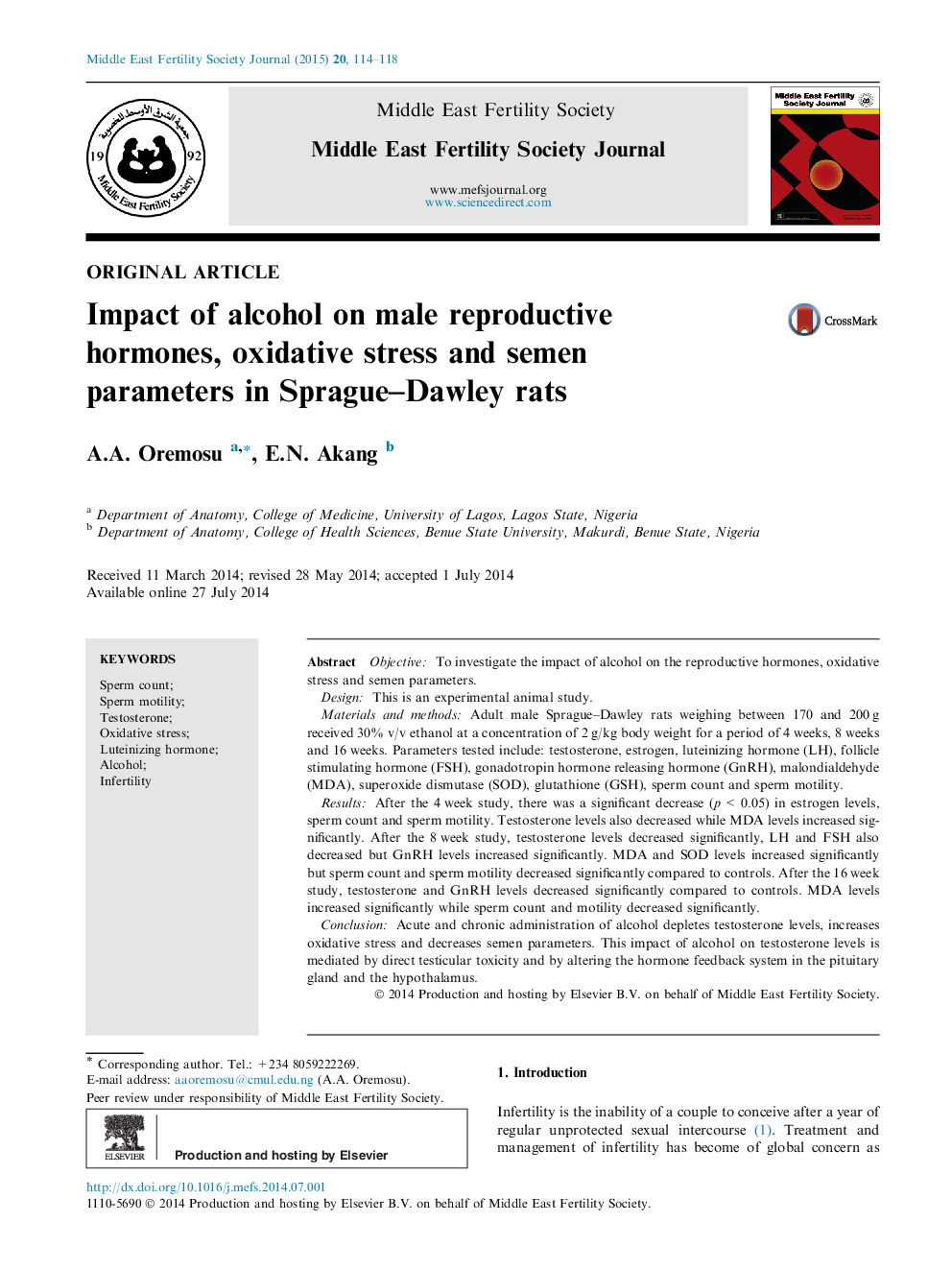| Article ID | Journal | Published Year | Pages | File Type |
|---|---|---|---|---|
| 3966133 | Middle East Fertility Society Journal | 2015 | 5 Pages |
ObjectiveTo investigate the impact of alcohol on the reproductive hormones, oxidative stress and semen parameters.DesignThis is an experimental animal study.Materials and methodsAdult male Sprague–Dawley rats weighing between 170 and 200 g received 30% v/v ethanol at a concentration of 2 g/kg body weight for a period of 4 weeks, 8 weeks and 16 weeks. Parameters tested include: testosterone, estrogen, luteinizing hormone (LH), follicle stimulating hormone (FSH), gonadotropin hormone releasing hormone (GnRH), malondialdehyde (MDA), superoxide dismutase (SOD), glutathione (GSH), sperm count and sperm motility.ResultsAfter the 4 week study, there was a significant decrease (p < 0.05) in estrogen levels, sperm count and sperm motility. Testosterone levels also decreased while MDA levels increased significantly. After the 8 week study, testosterone levels decreased significantly, LH and FSH also decreased but GnRH levels increased significantly. MDA and SOD levels increased significantly but sperm count and sperm motility decreased significantly compared to controls. After the 16 week study, testosterone and GnRH levels decreased significantly compared to controls. MDA levels increased significantly while sperm count and motility decreased significantly.ConclusionAcute and chronic administration of alcohol depletes testosterone levels, increases oxidative stress and decreases semen parameters. This impact of alcohol on testosterone levels is mediated by direct testicular toxicity and by altering the hormone feedback system in the pituitary gland and the hypothalamus.
